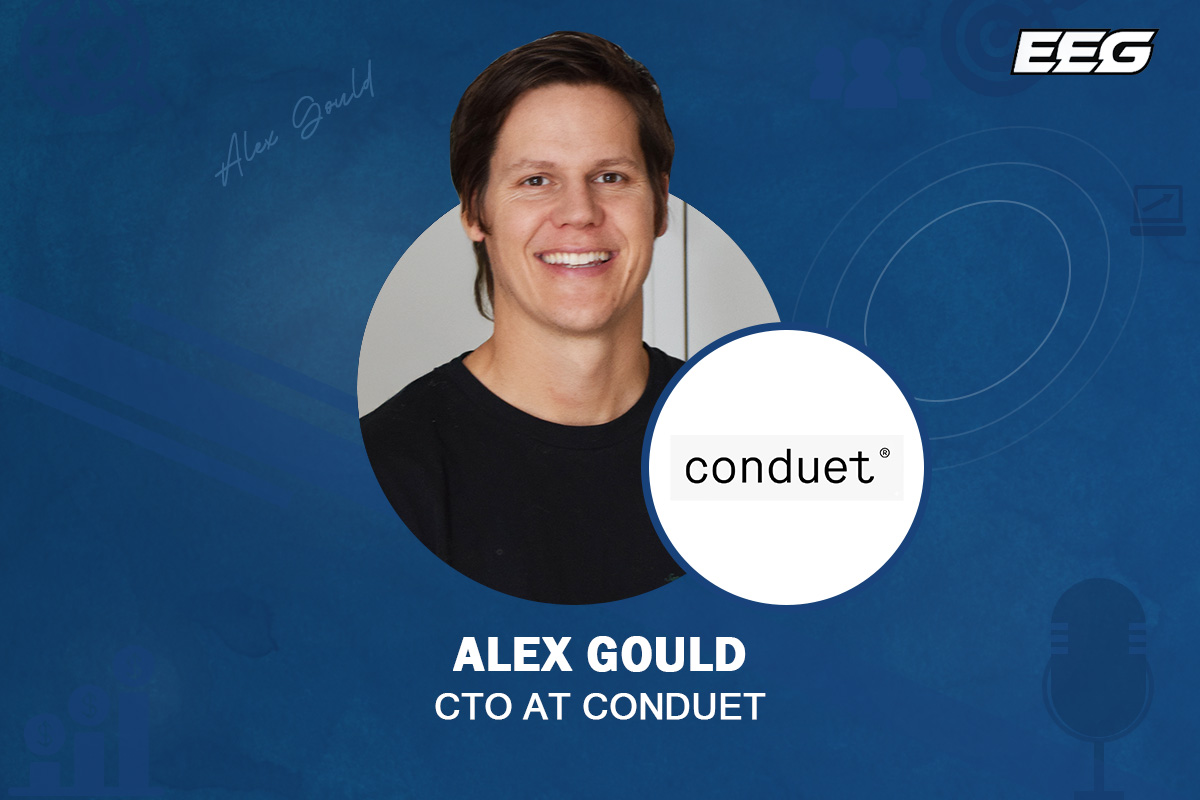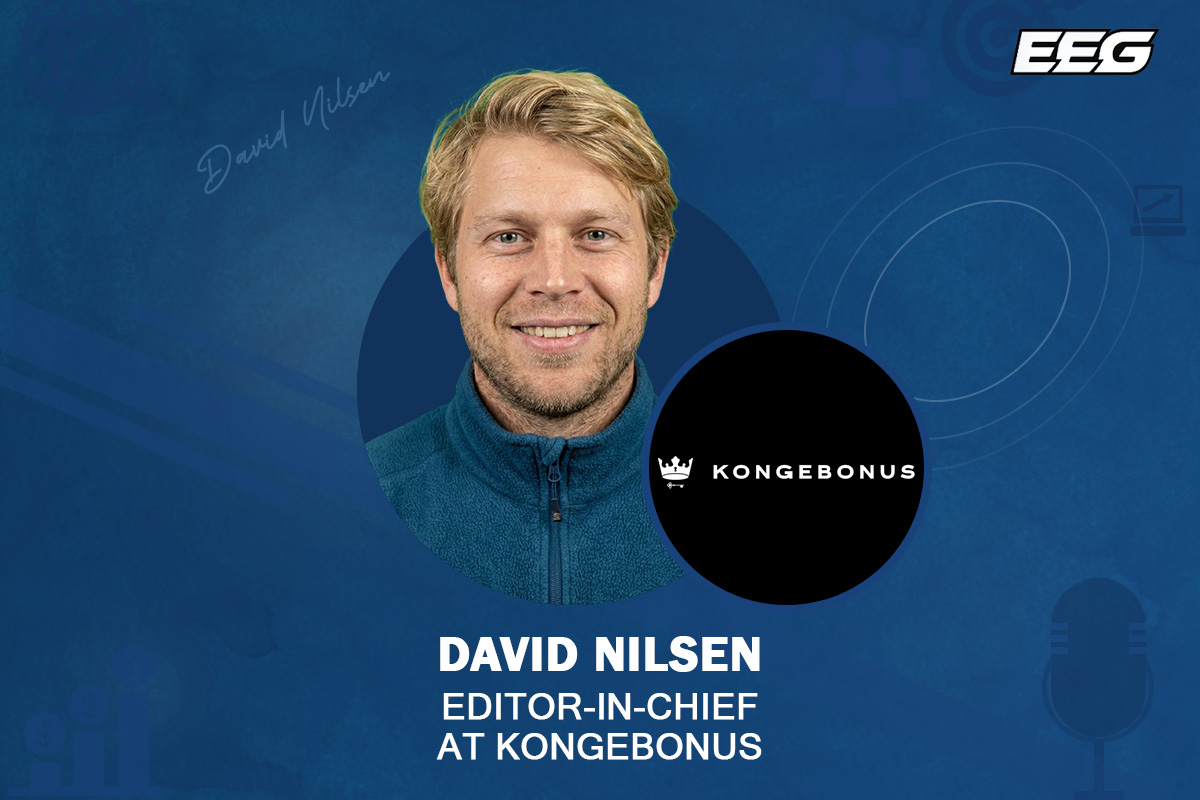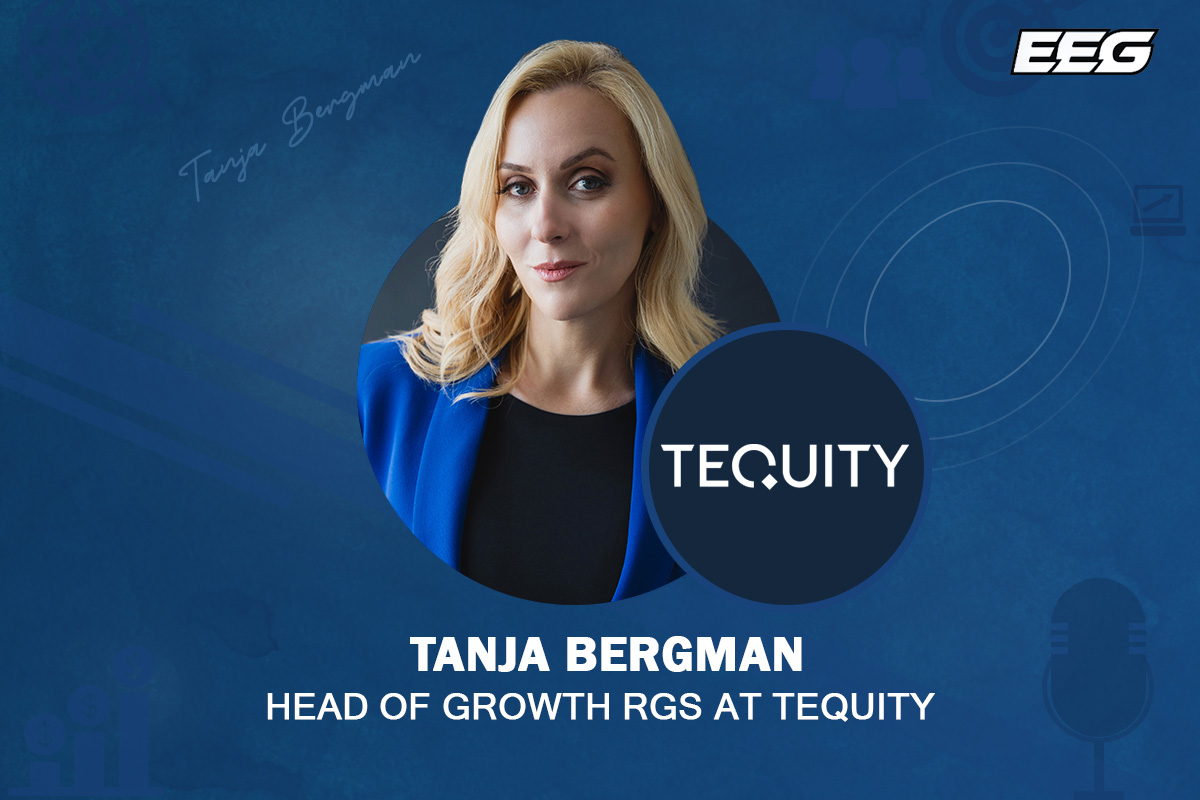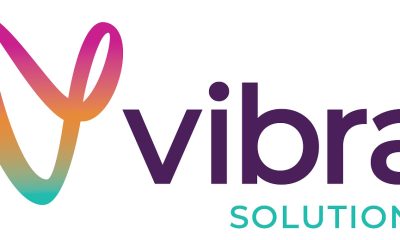Interviews
Exclusive Q and A with Tamas Kadar, Founder and CEO of SEON

“The sun literally never sets on SEON”, proudly declares Tamas Kadar while talking about the rapid growth of his company over the last few years.
There is more in this interview than such eye-catching slogans. He talks here about SEON’s origin, what exactly they do and how they do it. He concludes with insightful comments on fraud detection in the gambling industry and new developments.
Jump straight to the interview more such gems of quotes after the following appetizer about the tech start-up space:
“We have also been a profitable company since 2019, which is rarer than you’d think in the tech start-up space, where so many companies rely on rounds of investment rather than solid business fundamentals.”
Q. Let us start from the origin of SEON. Like Google, Facebook and many others, SEON too was founded at a university. While there is a brief intro about it on your website, could you narrate what exactly led to the founding of SEON?
A. Bence Jendruszák and I met at Corvinus University in Budapest and we instantly found that we had a shared interest in cryptocurrency. We saw that there was a gap in the market for a crypto exchange that served Central and Eastern Europe (CEE). When it went live, we were immediately bombarded by fraud attempts, but when we looked at what was currently on the market from legacy anti-fraud companies we found that nothing was really as good as what we knew was possible.
We created our own homebrew anti-fraud solution, and it was so good that other companies asked to use it. We saw that we had a business idea that had far more potential than the crypto exchange, re-focused our efforts, and now four years later here we are.
Q. Talk to us about the growth of the company over the years? Could you provide some statistics?
A. The most important stat is always going to be customer growth: we now have over 5,000 clients ranging from SMEs and start-ups to major international companies. We have also been a profitable company since 2019, which is rarer than you’d think in the tech start-up space, where so many companies rely on rounds of investment rather than solid business fundamentals. Most recently, we hired our hundredth employee, and we’re still growing.
Q. What are the recent developments and expansions? How did the company perform in a pandemic-induced world?
A. We’ve opened offices in four countries now: Budapest, London, the US and Indonesia – the sun literally never sets on SEON.
We also broke a record for the largest ever investment in a Hungarian company when we were funded by Creandum, who were also early investors in Spotify, Klarna and Depop. Their investment and mentorship are already allowing us to create new products and bring them to a much greater audience.
What’s more, we adapted well during the pandemic because we have always worked across multiple offices – changing to home working wasn’t a major challenge to us. The only difficulty was dealing with the sheer quantity of fraud during the past 18 months, but we have been able to continue to support our clients just as well as we had before the pandemic.
Q. SEON offers two products: Intelligence Tool and Sense Platform. Could you describe how SEON’s solution evolved into its present version?
A. The ideas were there from the start, but the technology behind them has gotten more sophisticated. We continually work on increasing speed to detect fraud even faster whilst reducing as much friction as possible for the end customer. At the same time, we build on depth for accuracy to reduce false positives. The more layering and data points we can check gives customers more certainty in each risk score. We also expand our breadth to cover more social signals and digital data points – an all-seeing eye to identify fraud quickly.
Q. How does SEON reduce friction for customers onboarding new users and accounts?
A. We know that customers want a fast, seamless sign-up process. If signing up for a new gaming site takes too long or requires too much work on the part of the player then they will go elsewhere. However, in gaming, as with other high-stakes industries like banking, there are regulatory demands that increase the ‘friction’ that new players are going to feel before they can start playing. It’s also very easy for anyone, whether they are a professional fraudster or just an unscrupulous player, to use throwaway emails, ‘burner’ phones and easy to obtain fake IDs and synthetic identities.
SEON can run a light and invisible customer profiling system in real time during customer signup that can assign risk scores to each customer – those with high scores will be given extra checks while the majority that are fine will go through with less friction. Since it is running in the background, customers will never know that they are being checked.
Q. What are the major types of fraud that SEON encounters and tackles? What sort of fraud do you think will affect the gaming and gambling industry in particular?
A. There are new forms of fraud emerging every day, so this list is going to be by no means extensive, but in iGaming we tend to see a larger number of low-stakes forms of fraud than in other industries. We find that because many gaming platforms give free bets or credit for new signups there is a lot of multi-accounting, which is fairly easy to find because there’s no incentive to create foolproof synthetic identities for a $10 bonus.
We also see a lot of ‘friendly’ fraud from players as opposed to criminals – players who have been banned creating new identities or unsuccessful players starting chargebacks to get back their losses. It’s a very fast-moving space compared to some of the other industries we work with, which is why it’s ideally suited for an AI-based system that can keep up.
Q. How does SEON ensure that it does not breach the user data protection and privacy regulations and protocols?
A. We always only use publicly available sources such as open data from social networks when we collect information—things like your browser, your screen resolution and hundreds of other device features.
We don’t store this information long-term in all cases – it is deleted after 12 months and not stored in a central database. We are fully compliant with GDPR and the relevant privacy regulations in the areas we operate. More importantly, we are always thinking about the balance between privacy and security in our work.
Q. Could you reveal the expansion plans and product launches in the near future?
A. We have just significantly upgraded our device fingerprinting capabilities based on our research on the kind of setups that fraudsters use to hide their tracks, and this will greatly increase our ability to not just detect fraud but prevent false positives and thereby increase the number of customers.
We also recently rolled out a revenue widget, designed to allow iGaming customers to easily see a snapshot of how much a user has deposited and withdrawn within the past year. Fraudsters usually have high revenue with low deposits as they abuse bonuses and loopholes.
Product updates and improvements are always ongoing as we develop more features that better support our customers and solve real fraud problems that they face.
To learn more about SEON, visit: https://seon.io/
Powered by WPeMatico
AI
Why operators are choosing to buy in their AI strategy

In an industry where margins are thin and player loyalty is fleeting, customer experience has become a key differentiator for operators. As AI becomes a core operational requirement, leadership teams face a clear choice: build proprietary technology in house, or partner with purpose built AI CX providers.
Alex Gould, CTO at Conduet, explains why more operators are choosing the latter.
What industry-specific CX challenges can an exterior solution address ‘out of the box’ compared to a generic build?
Generic AI struggles in sports betting and iGaming because player inquiries are shaped by complex, domain-specific rules and edge cases. Questions about settlements, promotions, withdrawals, or cash outs are rarely straightforward. They depend on wager structure, timing, eligibility criteria, and operator-specific logic.
Over 80% of player inquiries require pulling live, account-specific information from the PAM and applying it correctly within that broader rule set. Without purpose-built logic to interpret both the data and the edge cases around it, responses quickly become incomplete or incorrect.
This limitation is reflected more broadly in enterprise AI adoption. Research from MIT found that 95% of enterprise AI initiatives fail to deliver measurable business impact, often because broadly trained models are pushed into live environments without the domain context needed to handle real-world variability. What appears to work in controlled testing breaks down once exposed to operational complexity.
Purpose-built platforms are designed around this reality. By training on gaming-specific data, workflows, and failure modes, they can interpret live PAM data in context and handle both common and complex inquiries accurately from day one, without relying on extensive rules, manual escalation, or post-deployment patchwork.
How would you characterise the current skills gap within operator teams regarding AI implementation?
Operator CX teams are closest to the customer and understand where friction exists. The challenge is not identifying opportunities, but delivering AI that performs reliably in production. Turning insight into production-ready capability requires technical depth, dedicated ownership, and sustained iteration that sit outside the remit of most CX organisations.
Deploying AI in gaming requires expertise across model evaluation, conversation design, failure handling, and real-time interaction with PAMs and ticketing systems. It also requires ongoing investment to monitor performance, manage edge cases, and improve outcomes as volumes and player behaviour change. CX teams are structured to run day-to-day operations, which makes sustaining this work in parallel difficult.
As a result, many internal AI CX efforts stall or remain narrow in scope, not because the opportunity is unclear, but because the execution burden is too high.
What is the average time to market using a specialist platform, versus a full in-house build?
In-house AI efforts typically take 18 to 36 months to reach enterprise-ready scale. The delay is driven by the need to coordinate across CX, product, data, and engineering while establishing new ownership and operating models inside live CX environments.
A specialist platform compresses this timeline materially. With gameLM, operators can move from concept to live inbound CX in six to 12 weeks. Operators achieve 60%+ resolution within 90 days, scaling toward 80%+ shortly thereafter.
Why does a purpose built partnership model matter in iGaming & OSB CX?
In iGaming and online sports betting, the challenge is not adopting AI, but making it work reliably at scale. Generic platforms often shift the burden onto operators after deployment, requiring significant time and internal effort to adapt the technology to gaming-specific realities. That effort compounds as complexity grows.
A purpose built partnership model changes that dynamic. Instead of operators spending months closing gaps, AI is deployed using operating patterns already proven in live gaming CX. Common failure modes, escalation paths, and performance tradeoffs are understood upfront, reducing the need for downstream rework and ongoing firefighting.
Conduet applies this approach through gameLM, informed by operating a 500+ agent gaming CX organisation. That operating knowledge functions as an embedded R&D capability, shaping how the platform is tuned, prioritised, and extended alongside each operator’s environment. Inbound CX performance today directly informs the development of additional, gaming-specific capabilities such as reactivation, payments optimisation, and fraud prevention.
The result is a partnership model that delivers strong outcomes without transferring the hidden cost of adaptation and maintenance back to the operator, allowing CX capability to keep pace as the industry evolves.
Alex Gould is the CTO at Conduet, where he leverages his technical and strategic background to guide technology strategy and innovation. He is also the Founder and CTO of Everyday AI and previously founded computer vision company ViewX. Alex’s earlier experience includes roles at Primary Venture Partners and Bain & Company, and he holds an MBA from Columbia Business School and a Bachelor of Engineering (Hons) from the University of Canterbury.
The post Why operators are choosing to buy in their AI strategy appeared first on Eastern European Gaming | Global iGaming & Tech Intelligence Hub.
Interviews
Inside the Kongebonus Awards: What Norway’s Players Are Telling the iGaming Industry

As the only iGaming awards originating from Norway, the Kongebonus Awards are decided entirely by open player voting, offering a rare, unfiltered view into what truly resonates with a dedicated gaming community. Kongebonus Editor-in-Chief, David Nilsen, explains how this year’s results reflect shifting player expectations, highlight both emerging and established studios, and contribute to wider industry conversations around quality, innovation and long-term engagement.
The Kongebonus Awards are now in their fourth year. How have you seen them evolve since the first edition?
Since the first edition, the Kongebonus Awards have grown both in reach and in significance. What started as a way to highlight standout games for our Norwegian audience has developed into a recognised annual moment where player sentiment is clearly reflected back to the industry. Each year we see greater engagement from the community and more awareness among studios and suppliers about what the awards represent. The structure has also matured, with categories that better capture the diversity of modern game development. Most importantly, the awards have become a consistent reference point for which games and providers have truly connected with players over the past year, giving the results increasing weight within the wider iGaming conversation.
This year’s awards were presented in connection with ICE Barcelona. How important is it to connect a Norwegian, player-driven initiative with the wider international industry?
Connecting the awards to an international event like ICE Barcelona helps bring local player insight into the global industry spotlight. While the voting comes from Norwegian players, the studios and games involved operate across many markets. Presenting the results in that setting underlines that player preferences in Norway are part of wider trends in iGaming. It also allows international stakeholders to see how a Nordic audience responds to different styles of games, mechanics and themes. That perspective can be valuable for product planning and market strategy.
This year’s winners were decided through open public voting. Why is it important that the results reflect the voice of players so directly?
Having the winners decided through open public voting ensures the results are grounded in real player experience. The recognition comes directly from the people who have spent time with the games, formed opinions and chosen their favourites. That gives the awards a strong sense of authenticity. It moves the focus away from internal industry perspectives and places it firmly with the end users. For studios, this kind of recognition signals that their work has genuinely resonated with players, not just performed well commercially. Player-led results offer a clear and transparent indicator of which games and providers have built lasting appeal, and that makes the outcomes especially meaningful within the industry.
The awards focus not only on commercial performance, but also on quality, innovation and player experience. From this year’s winners, what stood out most to you?
What stood out most was the balance between creativity and accessibility. Players clearly reward innovation, but only when it is paired with strong execution and an enjoyable overall experience. Many of the recognised titles combine distinctive mechanics with clear game identity and smooth gameplay. There is also evidence that consistency matters. Studios that repeatedly deliver engaging, reliable experiences tend to build strong followings, and that loyalty is reflected in the voting.
How do categories such as Rising Star Game Developer and the Readers’ Hall of Fame help ensure the awards spotlight both emerging studios and more established names?
These categories make sure the awards reflect the full spectrum of achievement in the industry. The Rising Star category gives visibility to newer studios that are already making a strong impression with players through innovation and creativity, even if they do not yet have the scale of the largest providers. In contrast, the Readers’ Hall of Fame recognises games that have achieved lasting popularity and become long-term favourites. Including both perspectives shows that excellence is not limited to one stage of growth. It highlights that players value both fresh ideas and proven experiences.
Looking ahead, how do you expect the awards to continue growing, and what role do you see Kongebonus playing in shaping player-led conversations in the industry?
As player expectations continue to change, the awards will develop alongside them. The aim remains to document and highlight the studios and games that genuinely stand out from a player perspective. Over time, this may mean refining categories or exploring new ways to reflect emerging trends, while keeping open voting at the core. Kongebonus will continue to act as a bridge between players and the industry, translating community sentiment into insights that studios and suppliers can learn from. By keeping the focus on player experience and feedback, the awards can play a growing role in encouraging the industry to prioritise quality, innovation and long-term player engagement.
To find out more about this year’s Kongebonus Awards and see the full list of winners, visit: https://www.kongebonus.com/nyheter/vinnere-av-kongebonus-awards-2025/
The post Inside the Kongebonus Awards: What Norway’s Players Are Telling the iGaming Industry appeared first on Eastern European Gaming | Global iGaming & Tech Intelligence Hub.
Interviews
Scaling innovation through the launch of Tequity Publishing

Following the announcement of its new publishing vertical and the successful debut of Royal Drop, we sat down with Tanja Bergman, Head of Growth RGS at Tequity, to discuss how this new arm is set to dismantle technical barriers for ambitious studios and why scalability is the new frontier for the ‘Burst Games’ genre.
Tequity has just officially launched its Publishing vertical. What was the primary catalyst behind this move?
The industry is currently in a fascinating place. There is no shortage of creative talent among studios, but there is a massive technical bottleneck. We have seen so many ambitious studios with incredible concepts – especially those moving beyond traditional slots – who have been getting bogged down in terms of getting those concepts out into the marketplace.
The catalyst for Tequity Publishing was simple. We wanted to break down those technical barriers. By handling the infrastructure, distribution, and compliance frameworks, we allow studios to do what they do best, which is build outstanding games. It’s about speed-to-market without compromising on the quality or the vision of their content.
The launch coincides with the release of Royal Drop. How does this game, and the partnership with Mirror Image Gaming and The Fortune Engine, showcase what Tequity Publishing is all about?
Royal Drop is the perfect proof of concept. It’s a collaboration that highlights three important pillars of modern game delivery. You have Mirror Image Gaming bringing that fresh, video-game-influenced Burst Games energy, The Fortune Engine provide the math tools and templates, and Tequity Publishing offers the global scale and distribution pathway.

It shows that when you remove operational friction, you can create a game-first experience that appeals to a new generation of players who want something more interactive than a standard 5×3 reel.
Tequity Publishing offers two models: RGSaaS and RGS-to-RGS. Can you walk us through the strategic benefits of each?
Flexibility is key, because no two studios are at the same stage of their journey. The RGSaaS model is our full-service offering. It’s designed for studios that want to focus 100% on the creative side. We provide the entire infrastructure and publishing framework and it is essentially a business-in-a-box for game creators.
The RGS-to-RGS model is a more streamlined, tech-first approach for studios that already have their own RGS but lack the distribution muscle. It allows them to plug into our growing operator and aggregator network instantly. Both models are built on the same philosophy: helping studios reach parts of the market they otherwise couldn’t access on their own.
You mentioned reaching new generations of players. How does this vertical specifically empower studios to innovate in ways they couldn’t before?
When a studio is concerned about how they are going to integrate with a multitude of different operators or how to navigate complex jurisdictional requirements, they tend to play it safe. They stick to what they know.
By taking that weight off their shoulders, we give them the opportunity to be brave. Studios like Mirror Image Gaming are pushing the boundaries of modern iGaming, taking influences from the video game world. This is exactly what the new generation of players is looking for. We provide the scalability so that these niche, innovative ideas can achieve mass-market impact.
It’s been a busy period for Tequity, following the success of your Originals series and the iBankroll partnership. How does the Publishing vertical fit into the broader Tequity roadmap for 2026?
It’s all part of becoming the ultimate technology partner for the gaming industry. Whether it’s our streamer-friendly Originals or our Bankroll-as-a-Service offering, the goal is to provide scalable, customisable solutions. Tequity Publishing is the natural evolution of that mission. We aren’t only providing the tools anymore, but also the pathway to the player. Looking ahead, you can expect a series of further launches through our three-way collaborations. We’re proving that the barrier to entry for innovation has never been lower.
Finally, for studios looking to scale quickly, what is your main message to them?
Don’t let technical noise drown out your creative signal. If you have a game concept that breaks the mould, you shouldn’t have to spend years building the distribution architecture to get it seen. That’s what we’re here for. We want to help you launch at a speed and scale that matches your ambition, so that you can make a significant splash in the industry.
The post Scaling innovation through the launch of Tequity Publishing appeared first on Eastern European Gaming | Global iGaming & Tech Intelligence Hub.
-

 Amusnet6 days ago
Amusnet6 days agoWeek 7/2026 slot games releases
-

 Brino Games6 days ago
Brino Games6 days agoQTech Games integrates more creative content from Brino Games
-

 Aphrodite’s Kiss6 days ago
Aphrodite’s Kiss6 days agoLove on the Reels: Slotland Introduces “Aphrodite’s Kiss”
-

 Alex Malchenko6 days ago
Alex Malchenko6 days agoEvoplay Strengthens Canadian Presence with BetMGM Partnership
-

 3 Oaks Gaming6 days ago
3 Oaks Gaming6 days ago3 Oaks Gaming Enters Spanish Market
-

 Latest News6 days ago
Latest News6 days agoRed Papaya Presents: Lucky Rainbow Rush Adventure
-

 AMLA6 days ago
AMLA6 days agoAMLA Launches Public Consultation on Three Draft Regulatory Acts
-

 app launch Feb 20267 days ago
app launch Feb 20267 days agoVibra Solutions Powers Betxico Mobile App Launch in Mexico — Scalable iGaming Platform



















